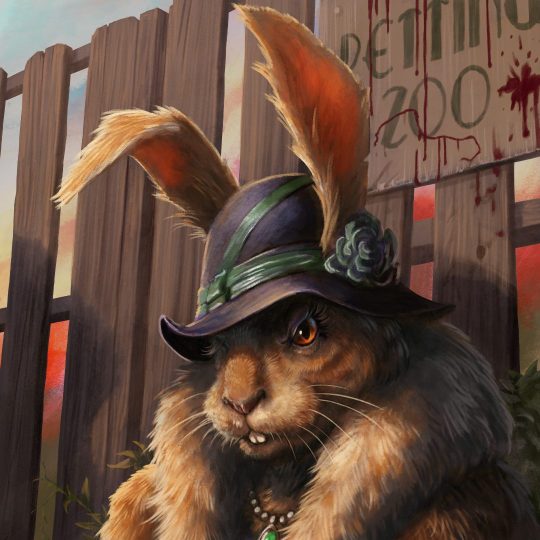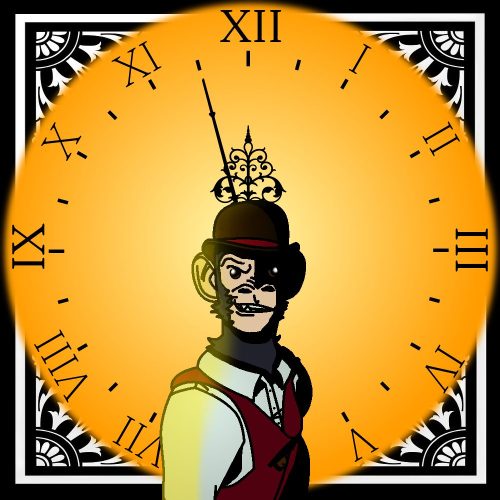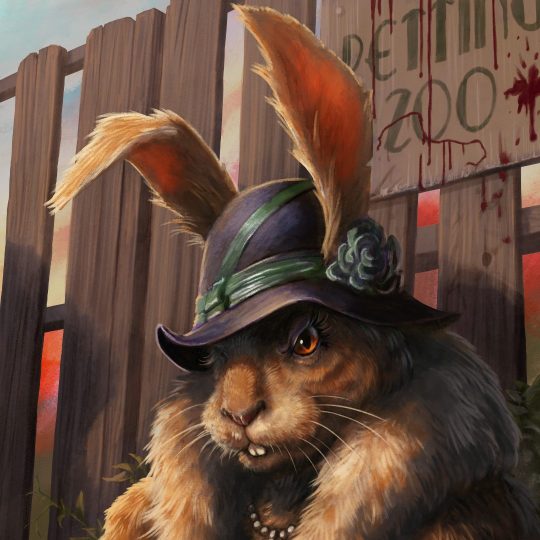
Fall in Love with Cypher System by Monte Cook Games for Your Next RPG Campaign
Nerdarchy’s new live play RPG Moon Rises is a post apocalyptic science fantasy game inspired by action cartoons from the 1980s. This premise is pretty high concept and while most tabletop roleplaying games accommodate fantasy elements the sci-fi and post apocalyptic elements are a bit neglected in many mainstream systems, and devising mechanics (while rewarding at times) is a heavy commitment. But our Game Master for this season of Nerdarchy Live game play, Nerdarchist Dave, had something up his sleeve. He introduced us to Cypher System. When Dave told us intended to use Cypher System by Monte Cook Games my response wasn’t exactly enthusiastic. I’d only heard of the RPG system in passing and when I learned Cypher was the genre agnostic version of Numenera my curiosity was piqued, though I remained skeptical. What I’d heard of Numenera was it was a fun game but had a stigma of being overly simple. So far, not a great setup to the system, huh? I try to keep things positive in my articles, though never at the expense of honesty. That probably has you wondering why I chose to do an article on Cypher System. The reason I’m writing is to say I was wrong. I was very wrong. What’s more I’d bet if I had heard such things about the system at my FLGS, I likely wasn’t alone and I wanted to set the record straight.
Discovering a new RPG
Over at Nerdarchy the YouTube channel Nerdarchists Dave and Ted introduce viewers to Cypher System and do an excellent job of explaining the basics. With a grasp of the RPG system under our belts, let’s talk about what makes Cypher System special and how it became one of my favorite RPGs.
Character builds are fundamentally different in the best ways
Every character in Cypher System builds on the following sentence format:
[Character’s name] is a [descriptor] [type], who [focus].
The character name portion is obvious. This is up to the player and can be literally anything. The descriptor is where things get interesting. If playing in a fantasy or alien populated sci-fi game the descriptor can work much like a race in systems like Dungeons & Dragons and Pathfinder, or the background in Dragon Age RPG. The descriptor grants an ability score bonus and offers a few flavorful modifications, some beneficial and some not so much.
While the descriptor can substitute for race (species, in this case) it certainly doesn’t have to. In fact a character doesn’t require any mechanical effects or manifestations of their race. The core rulebook contains descriptors to reflect a flavor of personality. While some descriptors, as mentioned by Ted, might seem inherently negative or positive, the fact of the matter is every descriptor has both positive and negative qualities. A Critical character might be less likable but they more readily notice when things seem amiss. A Kind character may benefit from naturally making lots of friends but this often clouds their ability to know when people are trying to deceive them.
A character can absolutely choose one of these personality focused descriptors instead of one describing their species, allowing for their race to exist as a purely flavorful option. This forward thinking approach begins from a place of cultural competence and racial inclusion creators of other systems are only just now talking about shooting toward. This proved to me that Cypher System is ahead of its time in a really special way and got me to take a closer look at the system on the whole, beginning my journey to discovery.
Types offer flexibility and customization
The next aspect of the character description is the type. A character’s type could also be called their archetype, with the three main ones being Warrior, Adept, Explorer and Speaker. While these types may initially feel like they belong in fantasy the system encourages players to add flavors to their characters (more on that in a minute) and to rename their types to suit the world in which they’re found.
Warrior is the classic fighter. They excel at solving problems with brute force. This commonly lends to a combatant like a paladin, barbarian and so on but once again, it doesn’t have to. Maybe your character is the biggest of their friend group in a Stranger Things-esque game combinig fantasy, sci-fi, horror and childhood adventure. They help their friends by punching open a heavy door or pulling up multiple characters who are holding onto one another for dear life over the edge of a cliff. Your Warrior fights for what they believe in when it counts, even in the face of physical obstacles or opposition.
The Adept is the “smart guy” of the group. Maybe they have magic, maybe they’re a telepath or perhaps they shoot fire from their hands using force of will alone. The approach to the Adept represents a character who uses their brain to their advantage. I really like how the game acknowledges intelligence might be social or cerebral, purposely avoiding the differentiation between knowledge and charisma. Adepts focus on using their intellect to affect things in the world around them, either supernaturally or through technology.
The Explorer is akin to the rogue, but more like a rogue from Dragon Age RPG than D&D. The reason is because the Explorer is about going places whether that’s breaking into a place you shouldn’t be, exploring the wilderness or delving into dangerous places. Explorers rely on skillful application of their hands and minds in equal measure. They tend to be speedy because they’re all about going places, literally. Explorers feel both more generalized and more nuanced than rogues of other games and I really appreciate, once again, how the Explorer doesn’t need to fight in any sort of a physical sense. It’s about the places you go, and if there’s danger this type offers a lot of versatility in dealing with problems.
The Speaker is the face of the group. They use their words, be they supernatural or not. Speakers might resemble bards or clerics from D&D but they’re more than this. The focus here is on their ability to influence others with their words, a truly powerful approach. Being able to convince someone not to fight is sometimes more effective than overcoming them. After all, as Abraham Lincoln said, “The best way to defeat your enemy is by making him a friend.” In an RPG influence is a fantastic way to gain power and this lends mechanical credence to that approach.
Regardless of type, each one offers its own perspectives on how to interact with the world. These nuanced types are truly the epitome of genre agnostic and much of what the game does already are things I have often found myself saying, “But wouldn’t it be cool if a system did things this way?”
Focus on what matters
Focus defines what a character does. Once again the language here is very general in terms of genre. In Moon Rises my warrior has the flavor of Explores Deep Waters. I could have chosen to make this the result of a mutation, or it might’ve been due to being of a race who lives underwater. In the end I settled on him having a suit of alien magitech designed for deep water exploration.
This versatility is where the system really shines. While focus is almost like a subclass, it isn’t quite like any other mechanic. It allows a degree of customization other systems lack. While some might complain about the lack of specificity I don’t think this takes away from the crunchiness of the system. To the contrary I believe it increases it exponentially. A lot of Cypher System depends on you and your GM working together to build things and while this requires a degree of trust I know some groups simply struggle to achieve, I don’t think it’s bad. By requiring this it fosters a different kind of dynamic at the table.
You character’s focus can be very specific and mechanically defined, tailored to your and your GM’s liking. It’s maybe a hint more generalized than, say, D&D, but that’s easy enough to deal with by simply adding a touch of specificity wherever you and your table feel necessary. This versatility allows your group to focus on the elements of the game that you want. Like many genre agnostic systems, Cypher System lends itself to homebrew and customization, even from game to game, and that’s a great feature of the game. It allows players and GMs to experience the games and stories they want without worrying about ignoring unnecessary rules that bog down the game they want because of balance issues.
Damage and vitality calculate with a whole new, surprisingly realistic system
For ages I’ve wished a game would come along to challenge the hit point system. I always felt there was a discrepancy between players who disliked fourth edition D&D because of its gaminess but embraced the hit points system. Look, I get it’s been around for a long time and it’s arguably part of the heritage and all that but honestly, I really like the way Cypher System treats things.
You have three separate pools of points: Might, Speed and Intelligence. These points can be spent to lower the difficulty of tasks so you can roll higher than the difficulty on a d20. However, these pools are also three separate hit point pools for your character, at least after a fashion. I really like the manifestation and dynamic that your character might have expended their physical strength (Might) to the point of exhaustion, or they might be so mentally taxed they can’t go on. Maybe their stamina is depleted to the point they can’t continue (Speed).
Here’s the thing — an assault or a trap might target any of these pools and deplete it. However, lowering the difficulty of skill tests and challenges also depletes the pool. Sometimes it makes more sense to take a physical hit than it does to defend against it, making the crux of the game about choices. When do you spend points vs. having them taken from you? Something about the elegance and flavor of this system really appeals to me and is one of my favorite aspects of Cypher System. It adds complexity in a simple, accessible way.
The weapons and armor are another point, with each being divided into three groups: light, medium and heavy. Light weapons deal 2 points of damage while light armors ignore 2 points of damage. Medium deals with 4s and heavy deals with 6s.
I could gush about the different aspects of this system, but ultimately I think a better approach is to tell you if you want to see the way it runs, tune into Nerdarchy Live on YouTube on Tuesdays at 8:00 p.m. eastern. You can watch us play the system then decide for yourself if you’re interested.
As for me, this experience has taught me not to write things off so quickly without giving them their fair shake. I almost missed out on discovering one of my favorite RPGs I’ve ever come across. I heartily recommend Cypher System to anyone looking to play a game that approaches RPGs in a familiar, fun yet fundamentally different way from others.
What do you think?
Have you played a Cypher System game, Numenera or any other Monte Cook Games? Are you as pumped for Moon Rises as I am? Have you checked out our campaign trailer? Whatever your thoughts, I’d love to see what you’ve got to say in the comments! Later, nerds!









No Comments